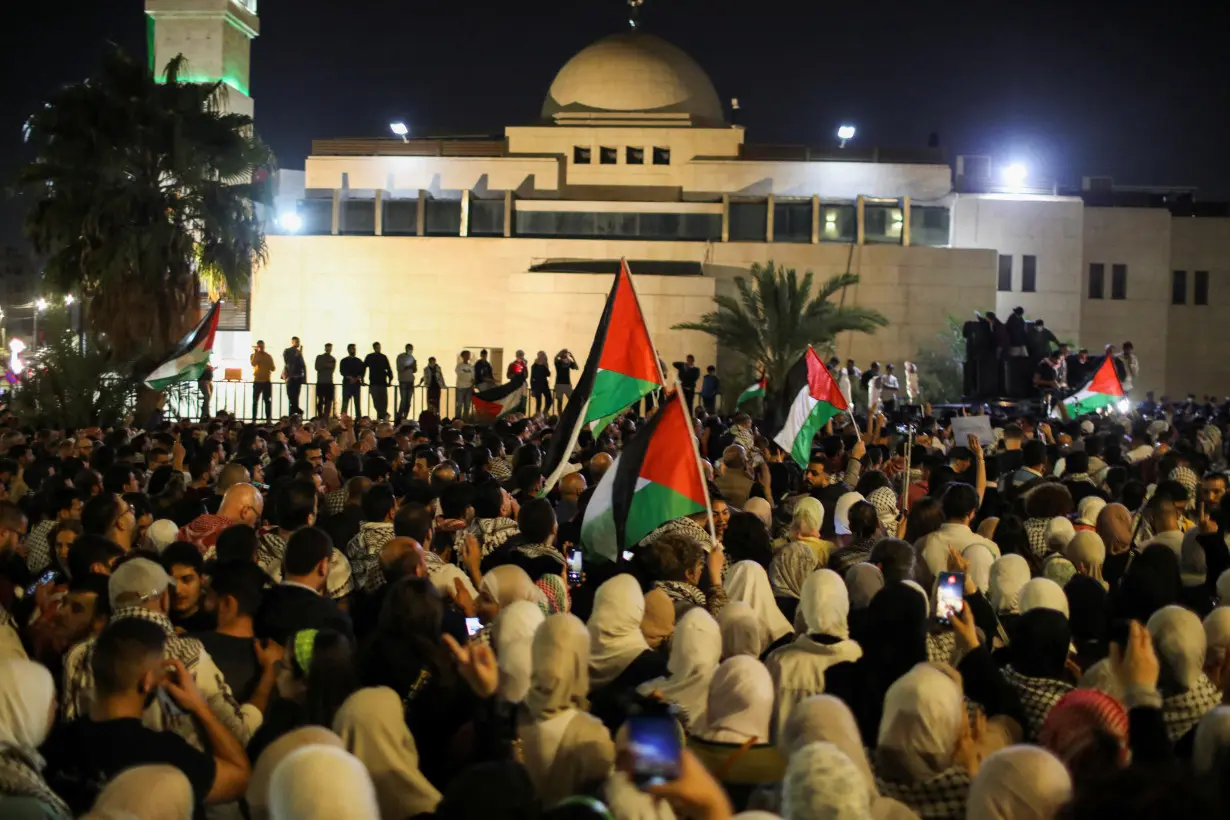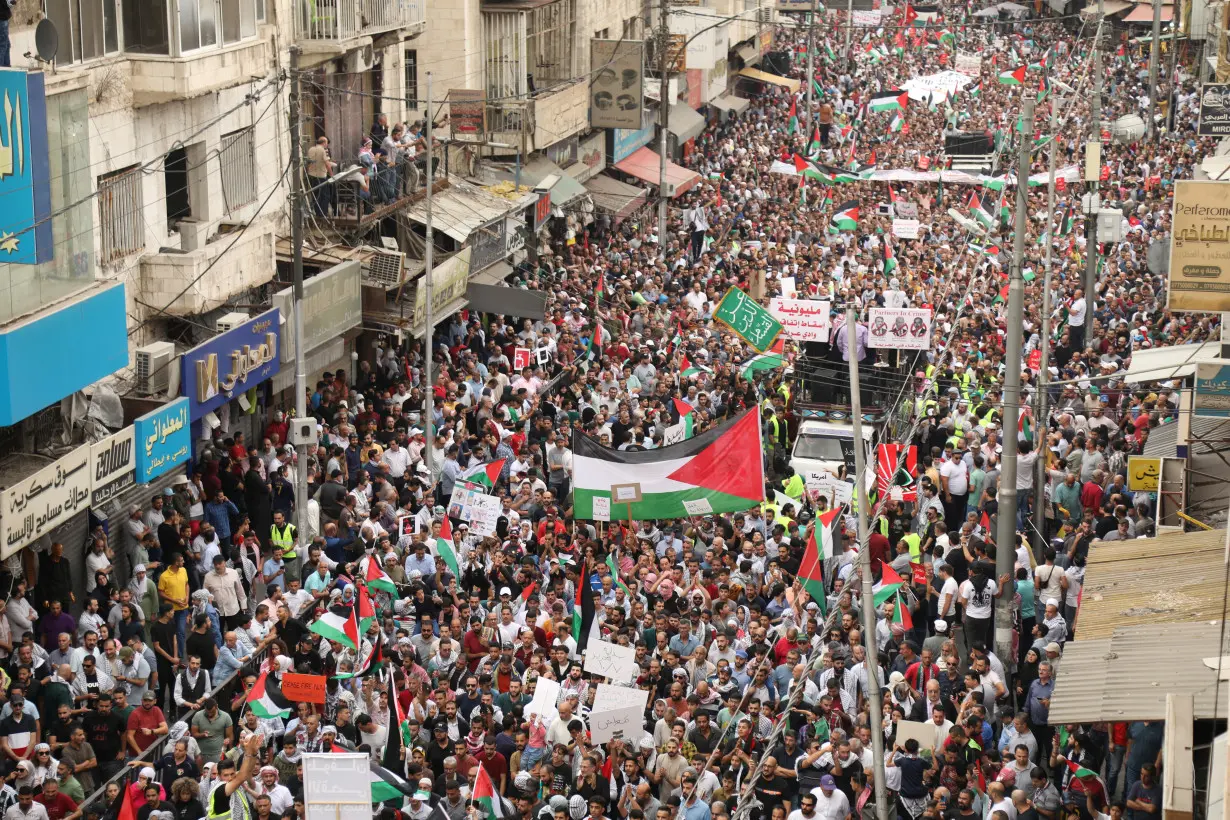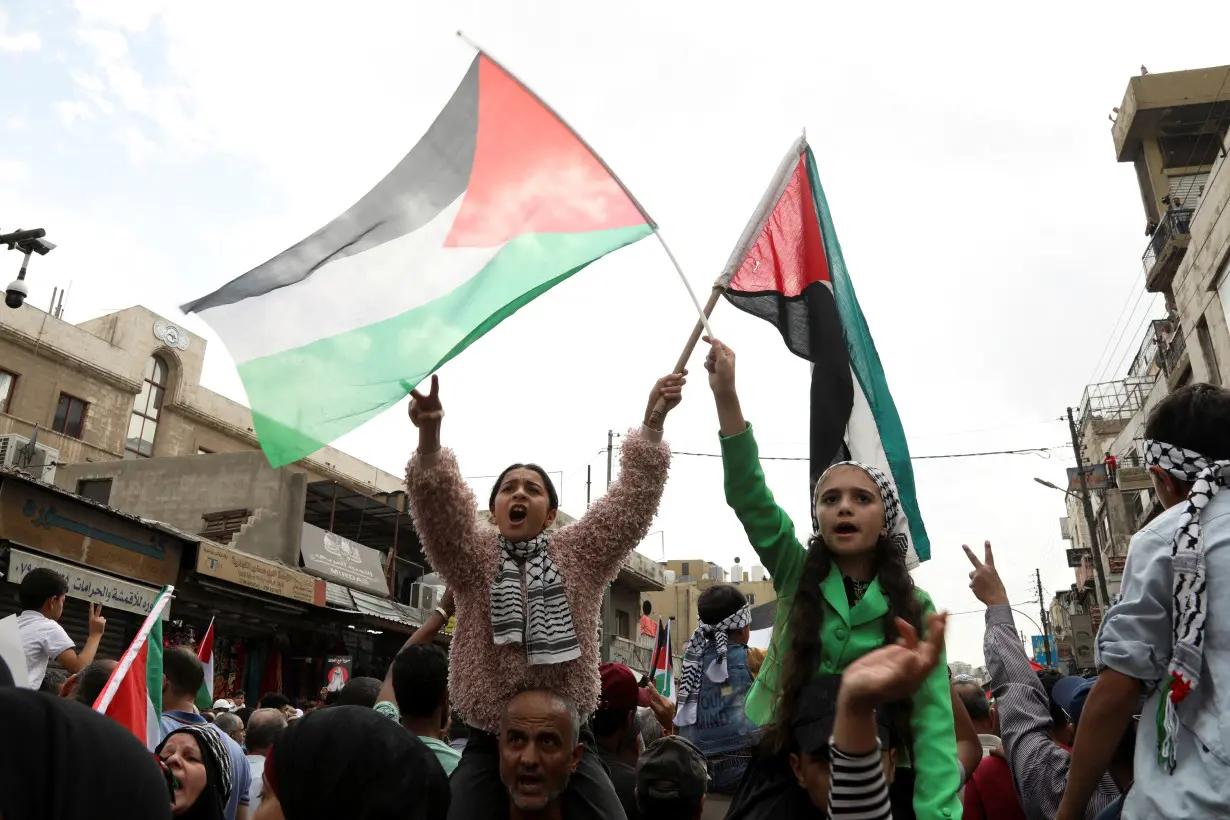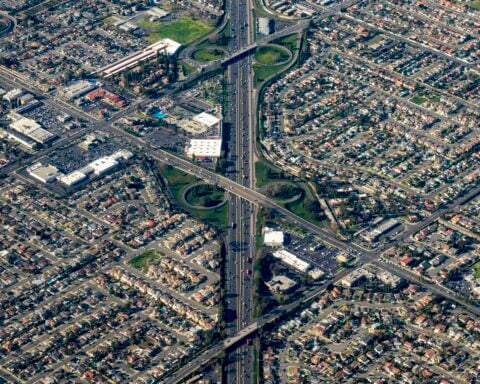By Suleiman Al-Khalidi
AMMAN (Reuters) - Jordan's request for Patriot air defence systems from Washington reflects its growing concern about being caught in the crossfire if the war in Gaza pulls in Iran and its well-armed regional militias on the kingdom's borders.
Jordan neighbours Syria and Iraq - both states where Iranian proxies operate - and also sits next door to Israel and the Israeli-occupied West Bank. It has watched Israel's war against the Palestinian group Hamas, another Iranian ally, with rising alarm.

King Abdullah has spoken bluntly about his fears that the conflict could cause trigger a new displacement of Palestinians to the kingdom, already home to a large population of Palestinians dispossessed from their land when Israel was created in 1948.
But former senior Jordanian officials and a security source told Reuters that Jordan was now appealing for more advanced U.S. defence hardware and support because of worries Iran and its proxies could become embroiled more deeply in any wider Middle East conflagration.
"Jordan needs these weapons to protect itself, but it is also in the U.S. interest, and it is a key deterrence to the Iranians," said Mamoun Abu Nuwar, a former Jordanian air force general.
"With the presence of these unruly, uncontrolled militias, let's say that if they start striking Israel in a widening conflict, we would be caught in the middle," he said.

A Jordanian army spokesperson said on Sunday that Amman had requested that U.S. Patriot missiles be deployed in Jordan.
Washington last stationed the air defence system in Jordan in 2013 when an escalating conflict in Syria had also raised fears of a regional flare-up that could threaten the country, one of Washington's most loyal Middle East allies.
Jordan's announcement of the Patriot request comes as Amman has been deepening its defence ties with Washington. It already has a list of U.S. equipment on order for its military, including 12 U.S.-built F-16 warplanes.
"I expect we will see a much more accelerated response to longstanding requests for a whole inventory of munitions and equipment that had been relatively slow to be delivered," said a security official in Jordan, who declined to be named.
BOLSTERING DEFENCES
A spokesperson for the U.S. Embassy in Amman did not have more details about the Patriot request. They said Washington was working with F-16's manufacturer on delivering the plane order and said U.S. military assistance to Jordan was worth more than $600 million a year.
The U.S. military said on Oct. 21 it would send a Terminal High Altitude Area Defense (THAAD) system and Patriots to the Middle East - without saying precisely where they would be located - in response to attacks on U.S. troops in the region.
The Pentagon has declined to say whether the Patriot system will be deployed in Jordan.
Jordan's government signed a defence deal with the United States in January 2021, offering U.S. forces "unimpeded access" to several Jordanian military facilities, storage sites for prepositioning equipment and other installations.
The U.S. military has also been training Jordan's army.
"On the issue of our borders with Syria, bolstering our defence is in tune with U.S. interests in the region where there has been a building up of capabilities of the Jordanian army," said Samih Al Maitah, a former information minister.
Maitah, who has a close knowledge of Jordan's security and political thinking, said Amman needed support to defend itself against Iranian-backed militias building up their strength on Jordan's borders with Iraq and Syria.
He said Jordan's military and security forces were determined "to prevent any party in these Iranian militias from exploiting the Gaza war to achieve a security breakthrough".
GROWING IRANIAN INFLUENCE
Iran's influence in Jordan's neighbours has grown in the past two decades. The U.S.-led invasion of Iraq in 2003, which toppled Sunni Muslim autocrat Saddam Hussein, allowed Shi'ite Muslim Iran to expand its influence there.
Since the Gaza war erupted, Iranian-backed militias have attacked U.S. forces in Iraq, including a drone attack on Iraq's Ain al-Asad airbase on Tuesday.
Iran's influence in Syria has expanded since Tehran's allies, including Lebanese group Hezbollah, helped Syrian President Bashar al-Assad quell a rebellion that erupted in 2011. Iranian-backed militias hold sway on Syria's southern border with Jordan and Amman blames them and Iran for running a thriving drugs smuggling business.
Adding to the mix, Yemen's Iran-backed Houthi group said on Tuesday it had fired missiles at Israel on several occasions in October, including Tuesday when Israel said it downed an "aerial target" in the area of the Red Sea city of Eilat, which is located next to Jordan's border and its city of Aqaba.
"Getting the Patriots is now pressing in light of the escalation by Iranian proxies that are incrementally stepping up their drone attacks and firing rockets from Syria, Iraq and Yemen," said Saud Al Sharafat, former brigadier-general in Jordan's General Intelligence Directorate.
He said Jordan's army and security forces were "drawing up scenarios in the event we get caught in the crossfire from any of our borders".
(Reporting by Suleiman Al-Khalidi in Amman; Additional reporting by Phil Stewart in Washington; Writing by Edmund Blair; Editing by Angus MacSwan)

 Trump has begun another trade war. Here's a timeline of how we got here
Trump has begun another trade war. Here's a timeline of how we got here
 Canada's leader laments lost friendship with US in town that sheltered stranded Americans after 9/11
Canada's leader laments lost friendship with US in town that sheltered stranded Americans after 9/11
 Chinese EV giant BYD's fourth-quarter profit leaps 73%
Chinese EV giant BYD's fourth-quarter profit leaps 73%
 You're an American in another land? Prepare to talk about the why and how of Trump 2.0
You're an American in another land? Prepare to talk about the why and how of Trump 2.0
 Chalk talk: Star power, top teams and No. 5 seeds headline the women's March Madness Sweet 16
Chalk talk: Star power, top teams and No. 5 seeds headline the women's March Madness Sweet 16
 Purdue returns to Sweet 16 with 76-62 win over McNeese in March Madness
Purdue returns to Sweet 16 with 76-62 win over McNeese in March Madness








